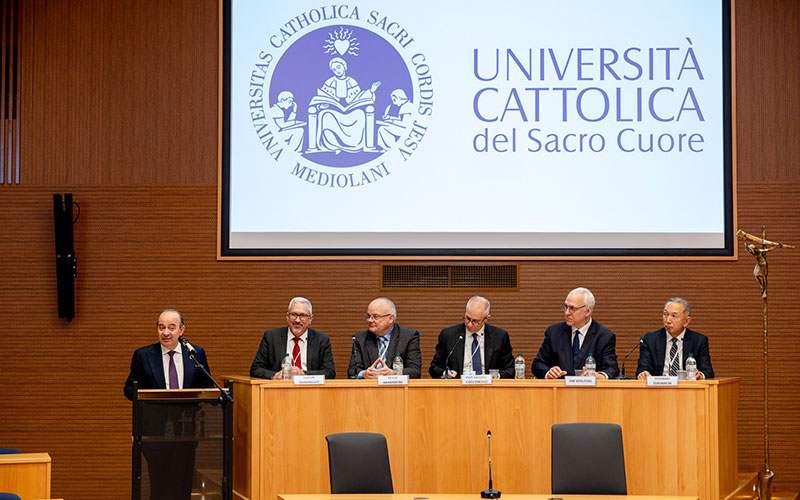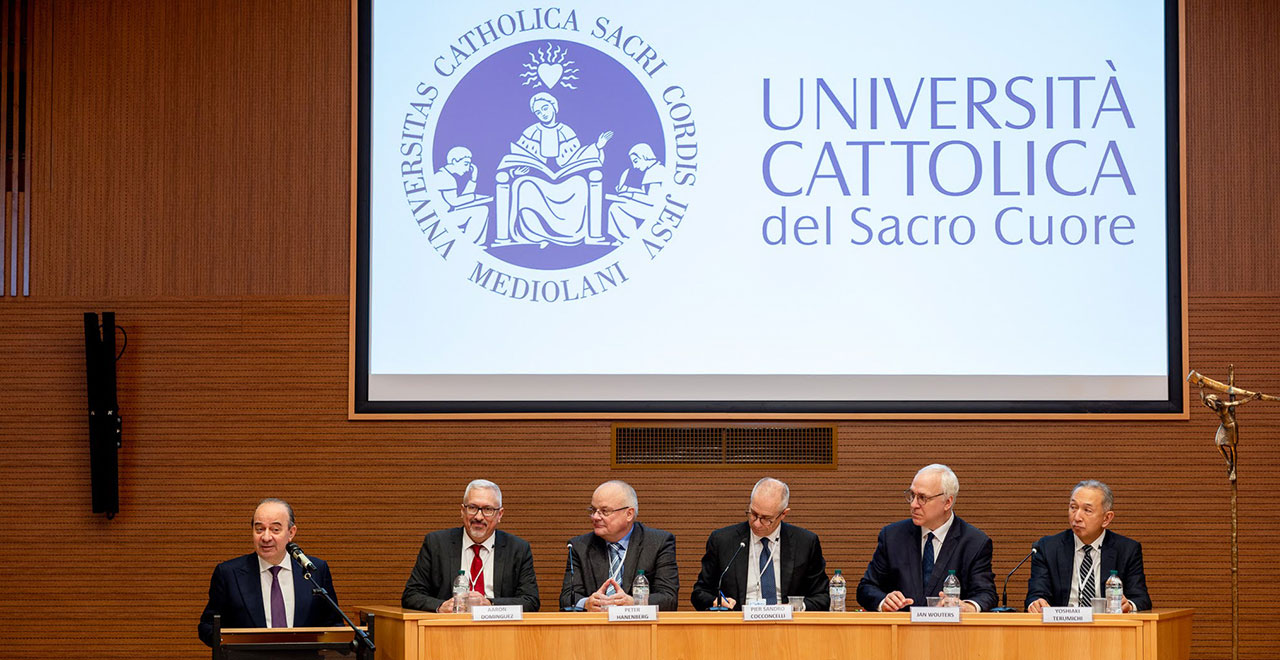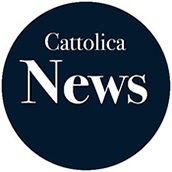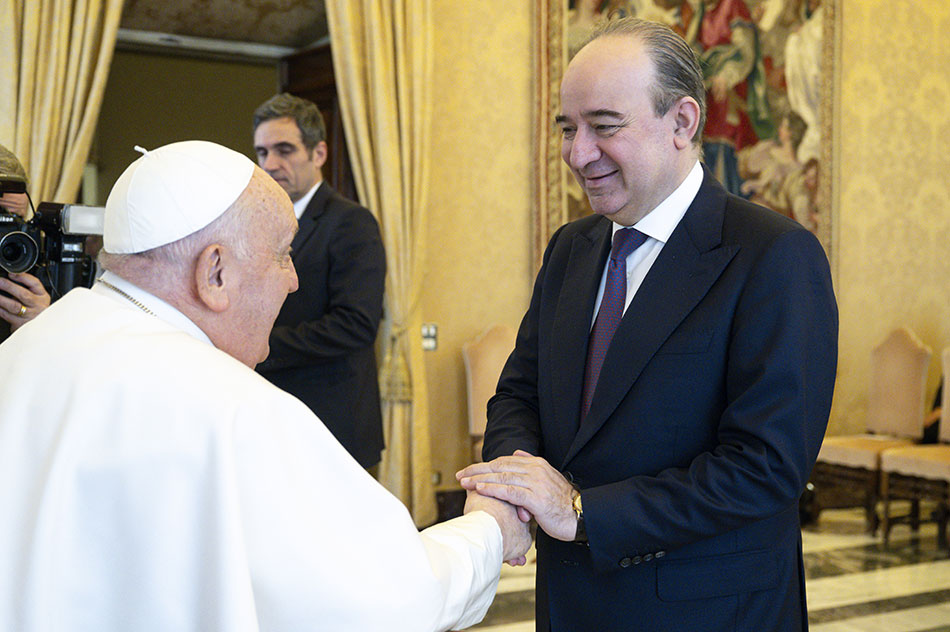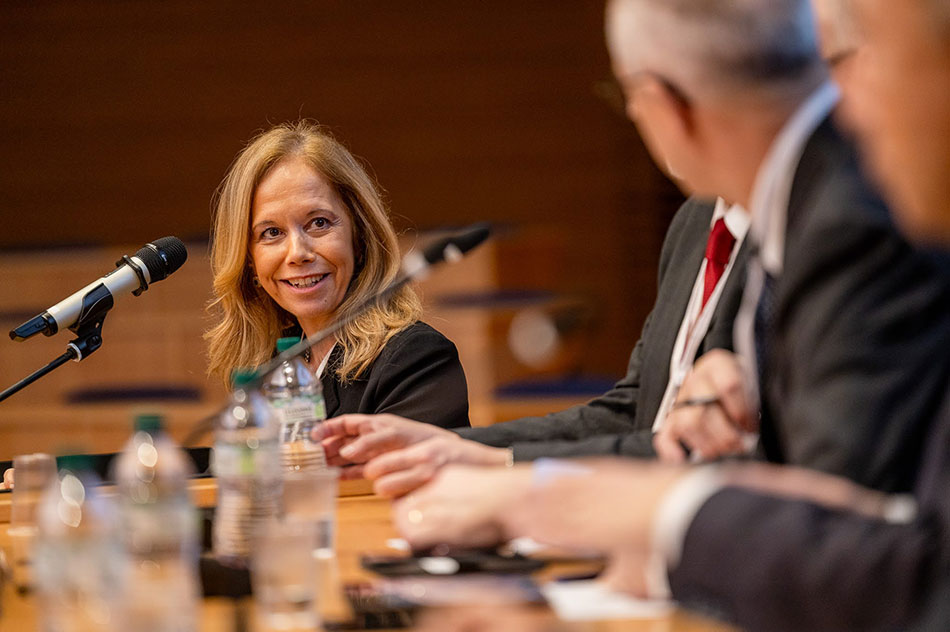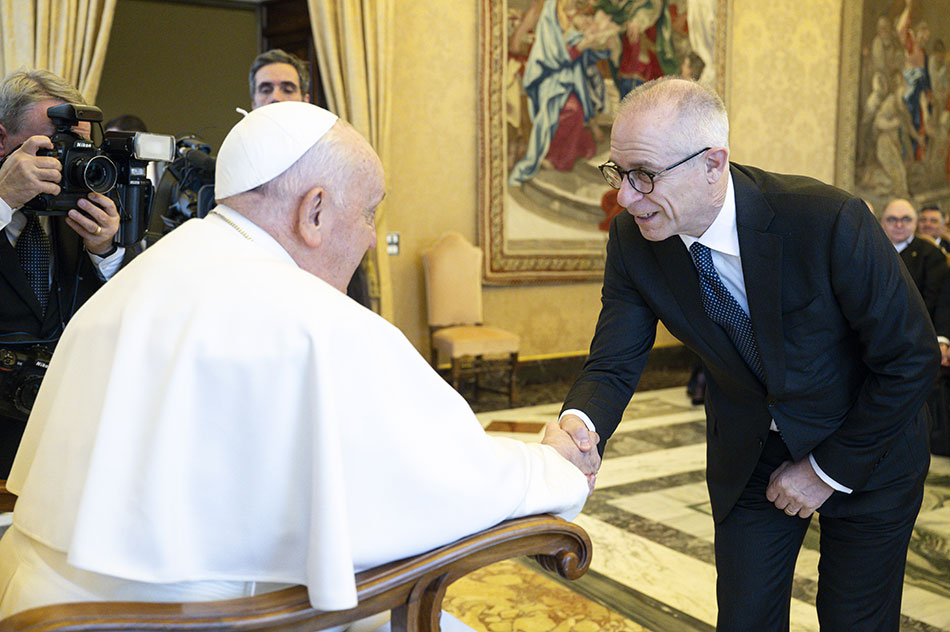Opened by Rector Anelli, introduced by the IFCU President, Professor Isabel Capeloa Gil, and concluded by the speech of Università Cattolica Vice-Rector, Professor Pier Sandro Cocconcelli, the conference was attended by Professors Yoshiaki Terumichi (President, Sophia University), Aaron Dominguez (Provost, Catholic University of America), Lilian Ferrer (Vice President for International Affairs, UC Chile), Jan Wouters (Full Professor of International Law, KU Leuven) and Peter Hanenberg (Vice-Rector for Research, Universidade Catòlica Portuguesa) who dialogued on the main points of the meeting: How to reframe the collective idea of the founders toward the next hundred years of the Federation? Which role does a network of Catholic Universities play in developing research, considering the centrality and continuity of the international perspective?
The categories to interpret the nature and, in my opinion, the destiny of Catholic universities are two: autonomy and inclusion," Rector Anelli said in his opening remarks. "Autonomy is about governing the different regions of human knowledge; specialization of knowledge is an indispensable feature of the dizzying increase in human knowledge. We are sometimes appalled by the myriad of disciplines and sub-disciplines and frightened (rightly) by the risk of fragmentation and incommunicability."
"But the varied landscape of knowledge is included (and here we have the second of the categories involved) in a broader horizon of meaning. It is a meta-theoretical value dimension that does not intervene in individual disciplines but makes their application alive and rich in meaning. To study, to teach, to work in a Catholic university means to be within a larger project, which gives meaning to our roles."- Professor Anelli continued. "Alone and isolated, we can do little; perhaps survive, in a continual rearguard battle against potential competitors with access to astronomical capital and excellent IT infrastructure."
